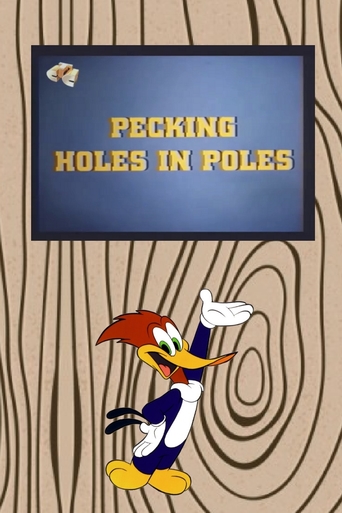Curapedi
I cannot think of one single thing that I would change about this film. The acting is incomparable, the directing deft, and the writing poignantly brilliant.
TheLittleSongbird
Was very fond of Woody Woodpecker and his cartoons as a child. Still get much enjoyment out of them now as a young adult, even if there are more interesting in personality cartoon characters and better overall cartoons.That is in no way knocking Woody, because many of his cartoons are a lot of fun to watch (almost all of them being in his prime era of the 1940s through to the mid-50s) and more and also still like him a lot as a character. For a late-period Woody Woodpecker cartoon, especially from the late 60s onward and directed by Paul J. Smith, 'Pecking Holes in Poles' turned out to be better than expected. It isn't great by any stretch of the imagination, but it's a long way from being one of the worst Woody Woodpecker cartoons, most of which at this point were average at best and the worst of them very weak.It's not a perfect cartoon by all means. The animation is not great at all, or even good. Time and budget constraints shows in a lot of the animation, which is very rushed looking in the drawing and detail wise it's on the simplistic and careless side like many of Woody's cartoons from this period continuing through to the 60s.Gags-wise, mostly they are funnier and better timed than most of the cartoons from this period but there is a lack of variety and a few are not as well-timed. The story is very thin and at times repetitive, anybody who has seen the Woody and Smedley cartoon 'Room and Bored' will find the concept and some of the story similar to that, except that this one has the stronger gags.However, Woody is portrayed with a lot of energy and charisma and he is not as toned down as he tended to be from the late 50s onward. With this being said, he has had much more manic energy, especially in his glory days when there was far more risk-taking, and his material is still a bit too safe.Farkle is a nice foil and one of the better, funnier and more memorable Woody Woodpecker foils of the late 60s onward period, many of them too derivative and forgettable.'Pecking Holes in Poles' mostly is amusing, never hilarious but that the cartoon raised a laugh at least of any kind is an achievement for this late stage, and has more energy than many late period Woody Woodpecker cartoons directed by Smith (and Sid Marcus' efforts for that matter). The pace is surprisingly lively and has more of the frenetic energy one expects from Woody Woodpecker that was generally missing in this particular period.Further standouts are the music and the voice acting. The music is bouncy, energetic and very lushly orchestrated, not only synchronising and fitting with the action very well but enhancing it. The voice acting is typically solid.In summary, above average but not great. 6/10 Bethany Cox

